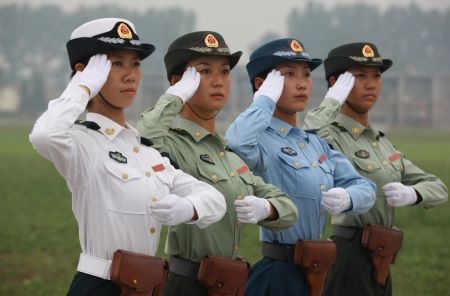According to one source:
baizuo is used generally to describe those who “only care about topics such as immigration, minorities, LGBT and the environment” and “have no sense of real problems in the real world”; they are hypocritical humanitarians who advocate for peace and equality only to “satisfy their own feeling of moral superiority”; they are “obsessed with political correctness” to the extent that they “tolerate backwards Islamic values for the sake of multiculturalism”; they believe in the welfare state that “benefits only the idle and the free riders”; they are the “ignorant and arrogant westerners” who “pity the rest of the world and think they are saviours”.
Why would ordinary Chinese people dislike the Western left so much? Here is the reason given:
The stigmatization of the ‘white left’ is driven first and foremost by Chinese netizens’ understanding of ‘western’ problems. It is a symptom and weakness of the Other.
The term first became influential amidst the European refugee crisis, and Angela Merkel was the first western politician to be labelled as a baizuo for her open-door refugee policy. Hungary, on the other hand, was praised by Chinese netizens for its hard line on refugees, if not for its authoritarian leader. Around the same time another derogatory name that was often used alongside baizuo was shengmu (圣母) – literally the ‘holy mother’ – which according to its users refers to those who are ‘overemotional’, ‘hypocritical’ and ‘have too much empathy’.
Many Chinese on social media came to identify Hillary Clinton with the white left and so supported Donald Trump in the American election. When one public intellectual, Rao Yi, took the opposing view,
An overwhelming majority of Zhihu users thought that Rao had only proved that he was typical of the ‘white left’: biased, elitist, ignorant of social reality and constantly applying double standards.
The Chinese seem aware that a modern liberal politics is suicidal:
According to Baidu Trends, one of the most related keywords to baizuo was huimie: “to destroy”. Articles with titles such as ‘the white left are destroying Europe’ were widely circulated.
To understand why the Chinese might reject the white left so firmly, it helps to consider moral foundations theory. This is a theory popularised by Professor Jonathan Haidt. Based on research into different cultures around the world, it was found that there are six basic moral foundations:
1. The care/harm foundation: the focus here is on maximising individual care and minimising harm, protecting the vulnerable.
2. The fairness foundation: not cheating the system, people rewarded according to their contributions.
3. The loyalty/betrayal foundation: being loyal to our tribe/team (including patriotism).
4. The authority/subversion foundation: respecting the authority or hierarchy necessary to preserve social order.
5. The sanctity/degradation foundation: protecting a sense of what is hallowed or sacred in institutions and ideals.
6. Liberty/oppression: not wanting to be dominated/bullied by a tyrant.
What Haidt found was that Western liberals are very strong on the first foundation (and also to a degree the sixth) but are not very committed to the others. Traditionalists, in contrast, were found to hold all six foundations in equal regard.
If, then, you are a Chinese net user, who is used to taking all six moral foundations into account, you are likely to perceive the white left negatively. You will see them putting all the emphasis on the first foundation (care/harm) - hence the criticism of the white left as being "hengmu:" overemotional, hypocritical empathisers. Similarly, the lack of emphasis on fairness (as proportionality) on the left leads to the criticism by the Chinese of the support by the white left for free riders. And, finally, the lack of a concern for the loyalty foundation leads the white left open to the accusation by the Chinese of destroying their own tradition.





 del.icio.us
del.icio.us
 Digg
Digg